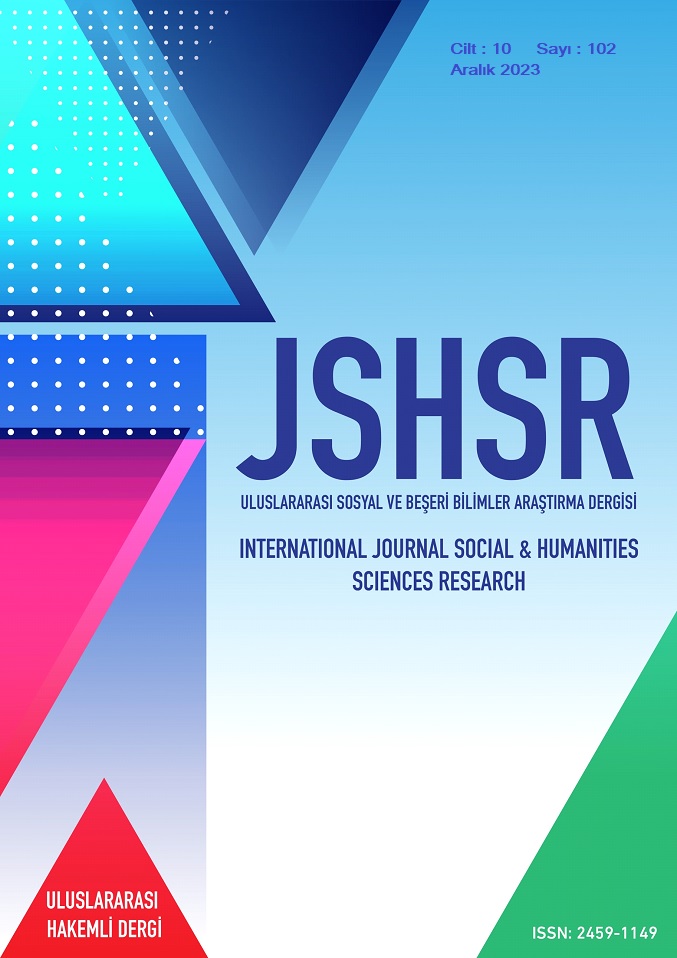Alternative Education Models
DOI:
https://doi.org/10.5281/zenodo.10452617Keywords:
Education, traditional education, alternative educationAbstract
The purpose and structure of education have evolved continuously with social changes over time. Traditional education systems have existed for centuries as structures that enable students to acquire knowledge and respond to the needs of society. However, the technological revolution, globalization and economic changes of the 21st century have necessitated the development of new approaches to education. In this article, the emergence of alternative education models as a reaction to traditional education, the characteristics of these models and their place in education will be examined. Alternative education models challenge traditional models with their student-centered approaches, flexible curricula and creative learning environments. Alternative approaches such as Montessori, Waldorf, Reggio Emilia and Democratic schools encourage children to take a more active role in the learning process and help them realize their individual abilities. Montessori and Steiner are pioneers in this field with their studies emphasizing the importance of individuality and creativity in education. This study is a literature review and aims to integrate existing knowledge on alternative education models. The survey model, one of the qualitative research methods, was used in the study. In this study, document scanning method was used to collect data. Data were collected by examining existing records and documents and document scanning was conducted. Alternative education models are based on the individual needs of students.
References
Dewey, J. (1938). Experience and Education. New York, NY: Kappa Delta Phi. Touchstone, 8(3), 5-31.
Easton, F. (1997). Educating the Whole Child, "Body, Mind, and Spirit": The Legacy of Rudolf Steiner. Waldorf Education World Wide.
Edmunds, F. (2004). An introduction to Steiner education: The Waldorf school. Rudolf Steiner Press.
Edwards, C. P., Gandini, L., & Forman, G. E. (Eds.). (1998). The hundred languages of children: The Reggio Emilia approach-advanced reflections. Greenwood Publishing Group.
Gandini, L., & Edwards, C. P. (Eds.). (2001). Bambini: The Italian approach to infant/toddler care (Vol. 77). Teachers College Press.
Göksoy, S. (2013). Türkiye ve Avrupa Birliği Ülkelerinde Zorunlu Eğitim Uygulamaları. Asya Öğretim Dergisi,1(1), 30-41.
Gray, P., & Chanoff, D. (1986). Democratic schooling: What happens to young people who have charge of their own education?. American Journal of Education, 94(2), 182-213.
Greenberg, D. (1991). Free at last: The Sudbury valley school. The Sudbury Valley School.
Karasar, N. (2005). Bilimsel araştırma yöntemi. Nobel Yayın Dağıtım.
Kramer, R. (1976). Maria Montessori: A Biography. New York: Putnam's Sons.
Lillard, A. S. (2017). Montessori: The science behind the genius. Oxford University Press.
Malaguzzi, L. (1993). For an education based on relationships. Young children, 49(1), 9-12.
Montessori, M. (1949). The Montessori Method. New York: Schocken Books.
Özdemir, S. (2018). Alternatif Eğitim Modelleri ve Örnekleri. Eğitim ve Öğretim Araştırmaları Dergisi, 7(4), 1-15.
Rinaldi, C. (2021). In dialogue with Reggio Emilia: Listening, researching and learning. Routledge.
Steiner, R. (1996). The Philosophy of Freedom. London: Rudolf Steiner Press.
Tolstoy, L. (1980). Who Should Learn Writing of Whom: Peasant Children of Us, or We of Peasant Children?. Thinking: The Journal of Philosophy for Children, 2(1), 35-42.
Wilson, A. N. (1988). Tolstoy. London: Hamish Hamilton.
Downloads
Published
How to Cite
Issue
Section
License
Copyright (c) 2023 INTERNATIONAL JOURNAL OF SOCIAL HUMANITIES SCIENCES RESEARCH

This work is licensed under a Creative Commons Attribution 4.0 International License.


